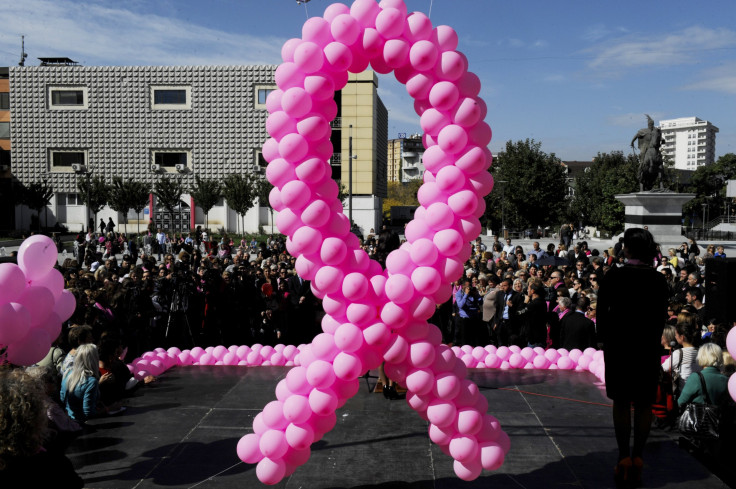Breast Cancer Risk Increases Threefold On Combined HRT Usage, Study Finds

Women who use combined hormone replacement therapy (HRT) can increase their risk of breast cancer by about three times, researchers found. They added that previous studies had dangerously underestimated this risk.
HRT is used to treat menopause symptoms like hot flushes migraines, disrupted sleep, mood changes and depression. Estimates say that at least one in ten women in their 50s in the United Kingdom use combined HRT that has both estrogen and progestogen. Using HRT that has only estrogen can increase the risk of womb cancer and taking combined HRT can help minimize this risk.
However, a study published Tuesday in the British Journal of Cancer found that women who take combined HRT were running a breast cancer risk 2.7 times greater than those who didn’t. Researchers at the Institute of Cancer Research in London also added that previous studies had underestimated the risk by nearly 60 percent.
“Our research shows that some previous studies are likely to have underestimated the risk of breast cancer with combined estrogen-progestogen HRT,” Anthony Swerdlow, study leader and professor of epidemiology at the ICR, said in a statement.
“Our findings provide further information to allow women to make informed decisions about the potential risks and benefits of HRT use,” he added.
This research is part of the charity organization Breast Cancer Now’s Generations Study, which is a major prospective study gathering and analyzing data from over 100,000 women for 40 years to investigate the causes of breast cancer.
Researchers monitored at least 39,000 women for six years and found that 775 or two percent of the women developed breast cancer during the course of the study. These women used combined HRT. The risk of developing breast cancer increased with duration of use. Women who use combined HRT for over 15 years are 3.3 more likely to develop cancer when compared to non-users.
There was no increased risk in women who used estrogen-only HRT. Researchers also found that the increased risk level returns to normal once HRT usage stops.
“Whether to use HRT is an entirely personal choice, which is why it’s so important that women fully understand the risks and benefits and discuss them with their GP,” Chief Executive at Breast Cancer Now Delyth Morgan said.
“On balance, some women will feel HRT to be a necessity. But in order to minimize the risk of breast cancer during treatment, it is recommended that the lowest effective dose is used for the shortest possible time. The good news is that the increased risk of breast cancer begins to fall once you stop using HRT,” she added.
© Copyright IBTimes 2024. All rights reserved.






















